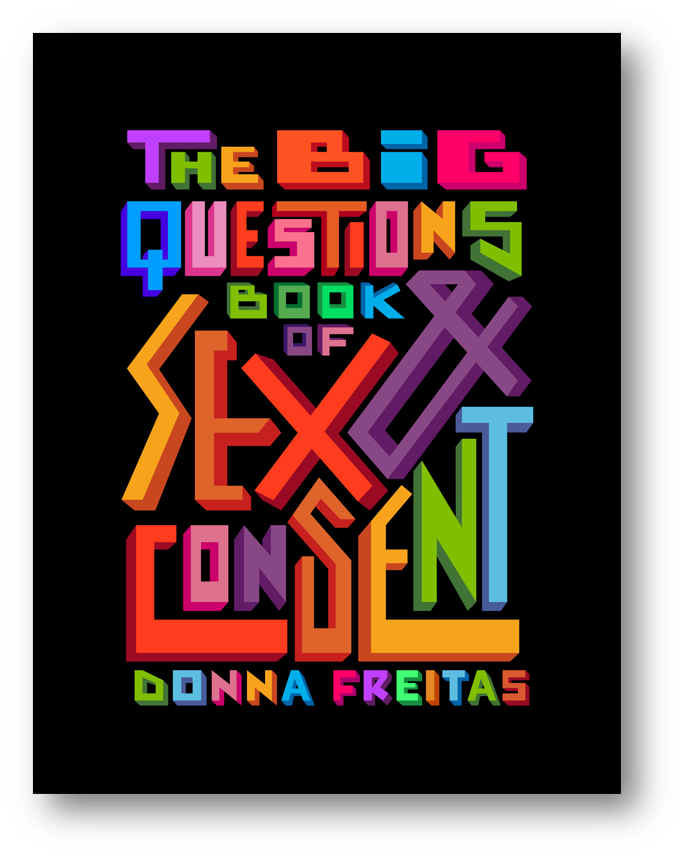Essay: Let's Talk About Sex with Donna Freitas
Donna Freitas is a college professor whose research has focused on issues related to sex, romance, relationships and consent for over a decade. In this blog, she talks about why she wrote her upcoming book The Big Questions Book of Sex & Consent.
This is the book I was always meant to write. The last fifteen years of work and research on sex, relationships, and consent on college campuses led to this one place—The Big Questions Book of Sex & Consent.
Throughout my career as a scholar, I’ve been talking to college students across the country about all-things sex and consent, and so many of those conversations have been prefaced with statements that went something like “I wish someone had told me . . . ” and “I wish I had known back when I was younger that . . . ” and “If I could go talk to my twelve-year-old self, knowing what I know now, I’d tell her . . . ” These statements are often followed by smiles and laughter, and sheepish grinning, but have always been full of longing and so much wishing—to have had a different kind of knowledge before college, to have had a much different kind of sex education than the one they received (if they received any at all).
And maybe that’s the word that this book resists more than any other: received. The idea that a sex education is something given to you, that you take, without question.
I want kids to claim their sex and consent education, I want them to feel invited to figure out what sex, sexuality, gender, and consent mean to them.
My approach to everything that’s inside this book is the opposite—it aims to put the power, the responsibility, the effort into the hands of readers. What I want for kids who haven’t yet gotten to college (or even close!) is what I so often see missing in the college students I speak with: empowerment. True sexual empowerment, which is not just about following rules or conforming to the narratives and stories people inherit about sex when growing up. I want kids to claim their sex and consent education, I want them to feel invited to figure out what sex, sexuality, gender, and consent mean to them.
I am interested not just in teaching kids the how of consent (Yes means yes! No means no!) but the why of it—why it matters, why we should care about our partners.
I think the best thing we can do for kids and young adults is offer them the tools they need to build a framework for becoming thinkers about sex; one that is flexible enough but also sturdy enough that it can last a lifetime, and accommodate and include the myriad ways of being a sexual and gendered being. I believe that if you become a thinker, a philosopher of sorts, an ethicist even (!) around sex and relationships from a young age, then you will automatically become a person concerned about consent and all that goes with it. I am interested not just in teaching kids the how of consent (Yes means yes! No means no!) but the why of it—why it matters, why we should care about our partners. I really and truly believe that this is how we change the world and empower our kids within it—we help them take ownership over their education, including this one. We start them early thinking about these Big, Important things. We give them the questions that don’t have easy answers, and let them develop the courage to face these ambiguities.
My greatest (and cheesiest!) hope is that, when the readers of The Big Questions Book of Sex & Consent get to college, instead of wishing they could go back and tell their twelve-year-old selves all the things they’d wish they’d known before, that instead they’re able to say: “I’m so glad that back when I was nine (or ten or eleven or twelve!) I became a thinker about sex, gender, and consent—that has made all the difference in my decisions, my sexual health, and my relationship to my partner(s).”
The Big Questions Book of Sex & Consent


